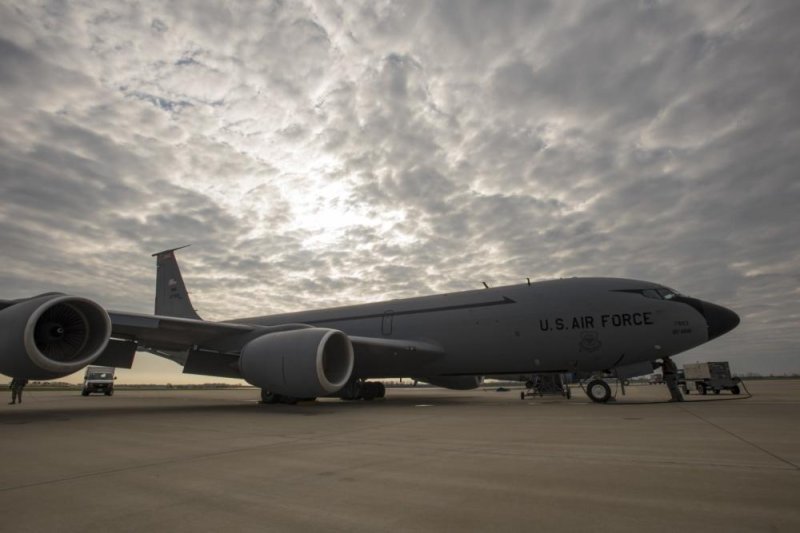A KC-135 Stratotanker from the 121st Air Refueling Wing sits on the flightline at Rickenbacker Air National Guard Base, Ohio. Photo by Tiffany A. Emery/U.S. Air Force
Sept. 10 (UPI) -- Airmen from Rickenbacker Air National Guard Base in Ohio and Tinker Air Force Base in Oklahoma have updated procedures for testing the condition of aircraft batteries on the KC-135 Stratotanker and C-130 Hercules.
The airmen were able to get charging equipment to sync properly with the battery, and provide accurate test results, by adjusting voltage and charging settings for some processes and updating technical guidance, according to an Air Force press release.
The team estimates the update will save the Air Force an estimated $463,000 in battery-replacement costs -- and about 5,280 maintenance hours across the service.
In 2017, personnel at Tinker found that the aircraft batteries, made by Teledyne Technologies, were failing maintenance tests at a much faster rate than expected, causing maintenance staff to reject and replace them before the projected end of their service life.
"We noticed that we had condemned more batteries in six months, than we had in the previous year," said Tech. Sgt. Jeffrey Frey, 121st Maintenance Squadron electrical and environmental specialist. "The battery is coded as an expendability item, so if they fail maintenance tests, they are thrown away -- which requires us to complete additional paperwork and go through the discard and replacement process."
But, Frey noted, the batteries were not failing at a higher rate during operations -- just during maintenance tests.
"None of the batteries were failing during flight or showing any physical defects. There was only an issue during maintenance," Frey explained.
The team worked with experts from the Air Force Research Laboratory, Teledyne and the 422nd Supply Chain Management Squadron and Depot Battery Backshop at Tinker -- as well as the Defense Logistics Agency and the University of Dayton Research Institute -- to identify the root cause.
The team determined the maintenance procedures were not compatible with the charging equipment, causing inaccurate test results.
The team updated the interim instructions to sync with existing equipment -- allowing them to charge and maintain the batteries without modifying the battery itself -- and reducing the average charging time and the number of necessary maintenance procedures, the Air Force said.















